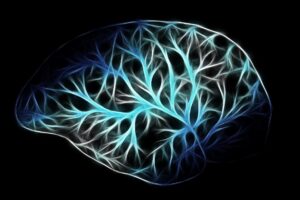The Connection Between Exercise and Mental Health: Unlocking the Power of Physical Activity
In recent years, there has been growing recognition of the profound connection between exercise and mental health. Regular physical activity not only improves our physical well-being but also plays a crucial role in promoting mental well-being. This article will explore the various mechanisms through which exercise impacts mental health, including the release of endorphins and neurotransmitters, stress reduction, enhanced brain function, improved sleep, mood regulation, increased confidence and self-esteem, the role of social support, and the overall impact of physical activity on mental well-being.
1. The Power of Endorphins and Neurotransmitters
One of the most widely recognized benefits of exercise on mental health is the release of endorphins, often referred to as the “feel-good” hormones. Endorphins act as natural painkillers and mood enhancers, creating a sense of euphoria and reducing stress and anxiety. Additionally, exercise boosts the production of neurotransmitters such as dopamine, serotonin, and norepinephrine, which play vital roles in mood regulation, pleasure, and motivation.
2. Stress Reduction and Emotional Resilience
Exercise serves as a powerful stress reliever, helping to reduce the levels of stress hormones like cortisol while increasing the production of endorphins. Regular physical activity can alleviate symptoms of anxiety and depression by providing a healthy outlet for pent-up energy and promoting emotional resilience. Engaging in exercise also diverts the mind from everyday worries and allows for increased focus on the present moment, fostering a state of mindfulness.
3. Enhanced Brain Function and Cognitive Abilities
Physical activity has a significant impact on brain function, promoting cognitive abilities such as attention, memory, and learning. Regular exercise increases blood flow to the brain, stimulating the growth of new blood vessels and neurons. Moreover, it encourages the release of growth factors that aid in the development and survival of brain cells. These neurological changes contribute to improved cognitive function, enhanced problem-solving skills, and greater overall mental acuity.

4. Improved Sleep Patterns
Quality sleep is essential for mental health, and exercise has a direct influence on the duration and quality of our rest. Physical activity helps regulate the body’s circadian rhythm, promoting a healthy sleep-wake cycle. Regular exercise can reduce the time it takes to fall asleep, decrease nighttime awakenings, and improve overall sleep quality. Adequate sleep, in turn, contributes to improved mood, cognitive function, and overall mental well-being.

5. Mood Regulation and Mental Resilience
Exercise has a profound impact on mood regulation, promoting feelings of happiness, contentment, and overall mental well-being. Physical activity stimulates the production of serotonin, a neurotransmitter associated with positive mood and emotional stability. Regular exercise can alleviate symptoms of depression and anxiety, promote self-confidence, and enhance overall mental resilience. Engaging in physical activity also provides individuals with a sense of accomplishment, leading to improved self-perception and increased self-esteem.
6. Boosting Confidence and Self-Esteem
Regular exercise can boost confidence and self-esteem, particularly when individuals observe physical improvements in their bodies. Achieving fitness goals, developing strength, and seeing positive changes in body composition contribute to an improved self-image. Engaging in physical activity also provides opportunities for personal growth, setting and achieving goals, and overcoming challenges. The sense of empowerment gained through exercise can have a profound impact on an individual’s overall self-esteem.
7. The Role of Social Support
Participating in physical activities often involves engaging with others, and creating opportunities for social interactions and support. Exercise can foster a sense of community, promoting social connections and reducing feelings of loneliness and isolation. Whether it’s joining group fitness classes, team sports, or simply working out with a friend, exercising with others can enhance motivation and well-being.

Physical activity provides a platform for individuals to meet like-minded people who share similar goals and interests. Whether it’s joining a local sports team, participating in group fitness classes, or engaging in outdoor activities, exercising with others creates a supportive environment where individuals can encourage and motivate each other. This social support system plays a vital role in mental well-being, as it provides a sense of belonging, reduces feelings of isolation, and increases overall happiness.
Moreover, the social aspect of exercise can lead to the development of new friendships and stronger social bonds. Connecting with others who share a passion for physical activity can lead to meaningful relationships, creating a support network that extends beyond the exercise itself. These connections offer opportunities for shared experiences, emotional support, and a sense of camaraderie, all of which contribute to improved mental health.
Beyond the individual benefits, exercise can also have a positive impact on communities as a whole. When individuals engage in physical activity together, it fosters a sense of unity and shared purpose. Parks, recreational centers, and other exercise spaces become gathering places where people from diverse backgrounds can come together, fostering a sense of community and promoting social cohesion.

To Conclude
The connection between exercise and mental health is multifaceted and powerful. Regular physical activity improves our physical fitness and positively impacts our mental well-being. Through the release of endorphins and neurotransmitters, stress reduction, enhanced brain function, improved sleep patterns, mood regulation, increased confidence and self-esteem, the role of social support, and the overall impact on mental well-being, exercise emerges as a potent tool for cultivating good mental health.
So, whether it’s going for a jog, hitting the gym, practicing yoga, or engaging in team sports, finding a form of exercise that you enjoy and incorporating it into your routine can have transformative effects on your mental well-being. The journey towards better mental health starts with taking that first step, quite literally, towards an active lifestyle. Embrace the power of physical activity and unlock its incredible benefits for your body and mind.

